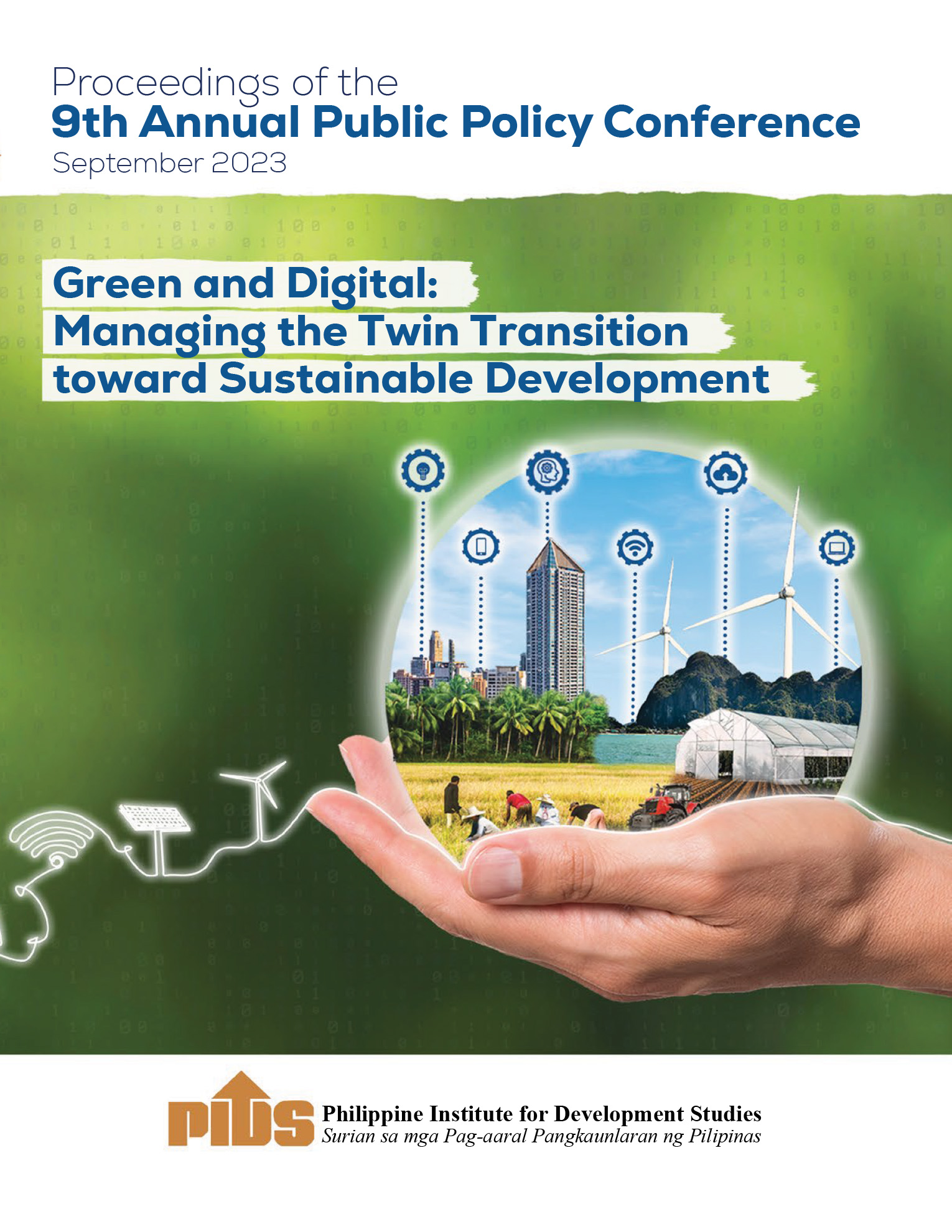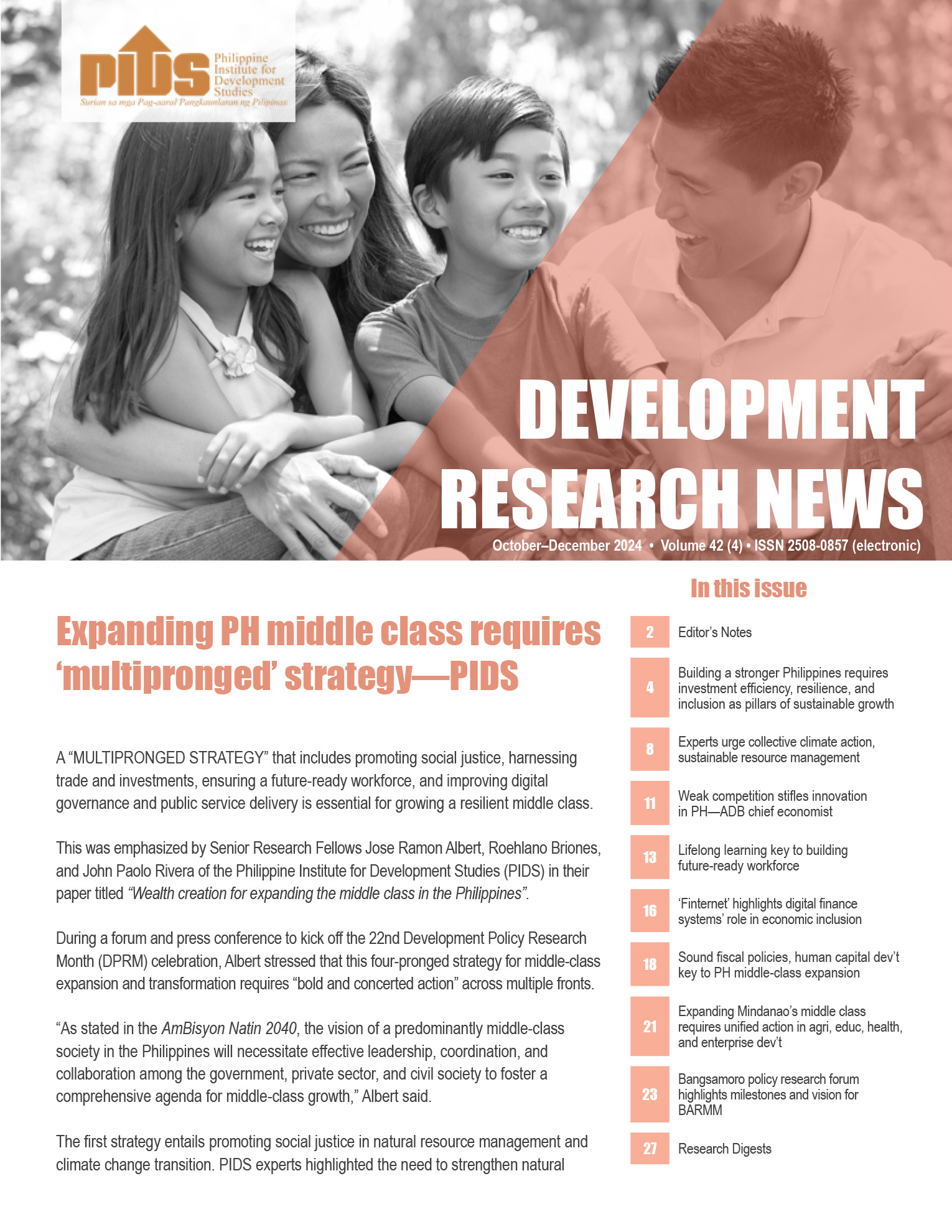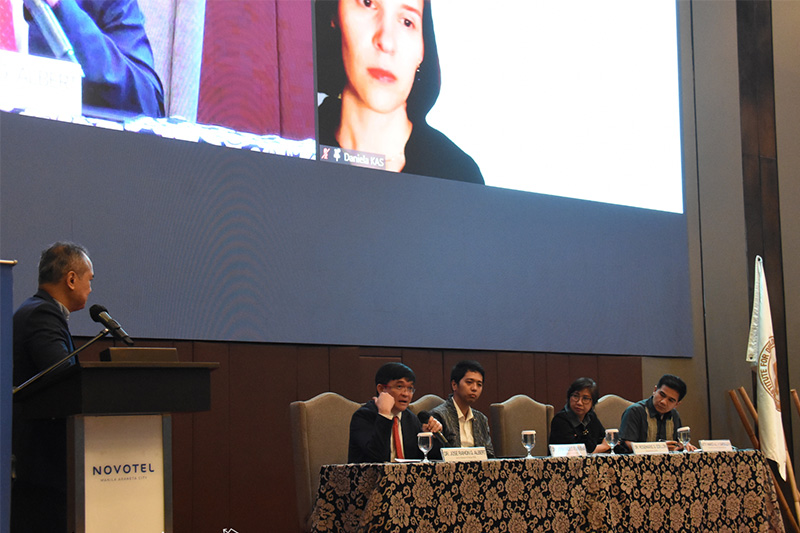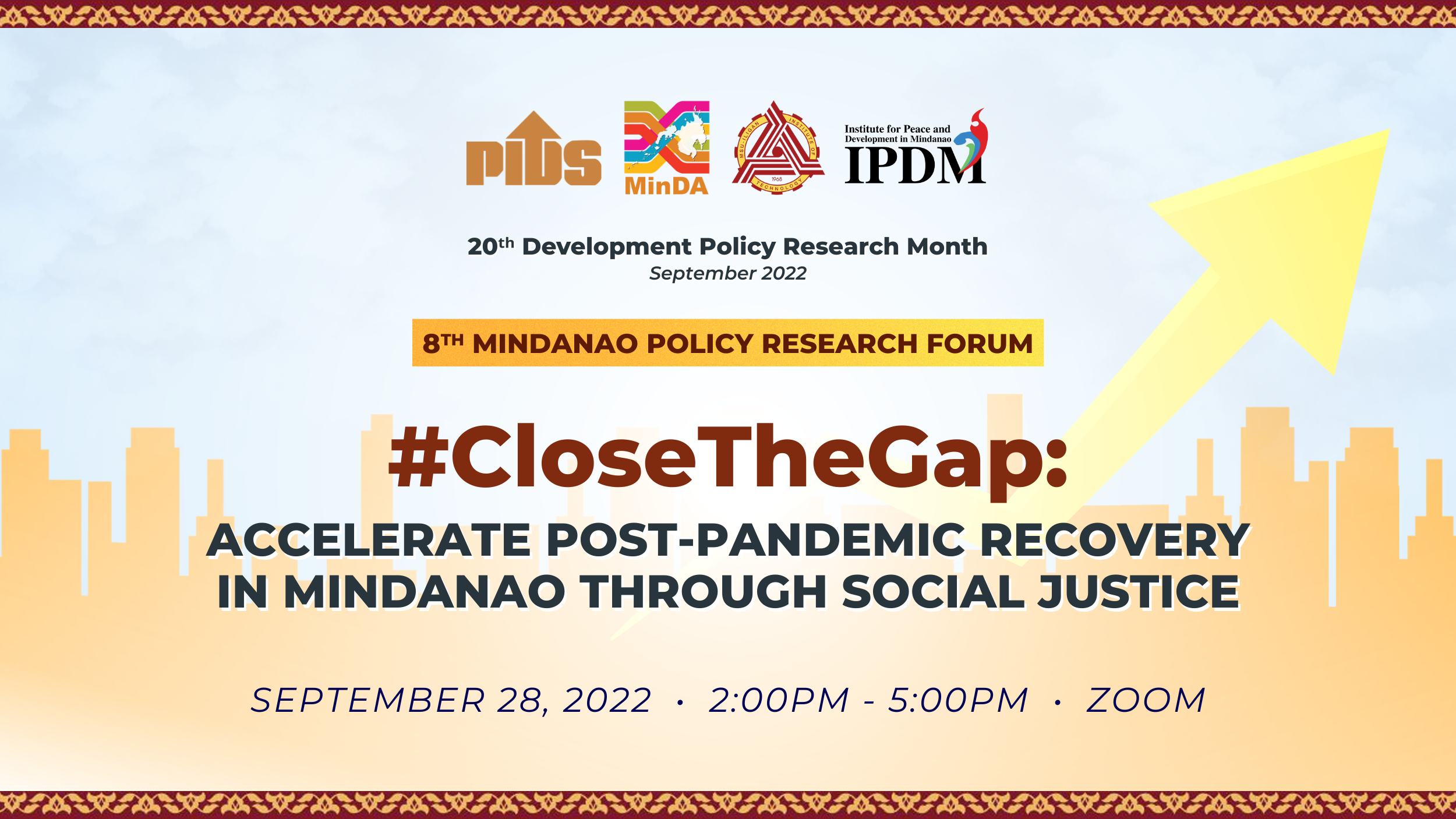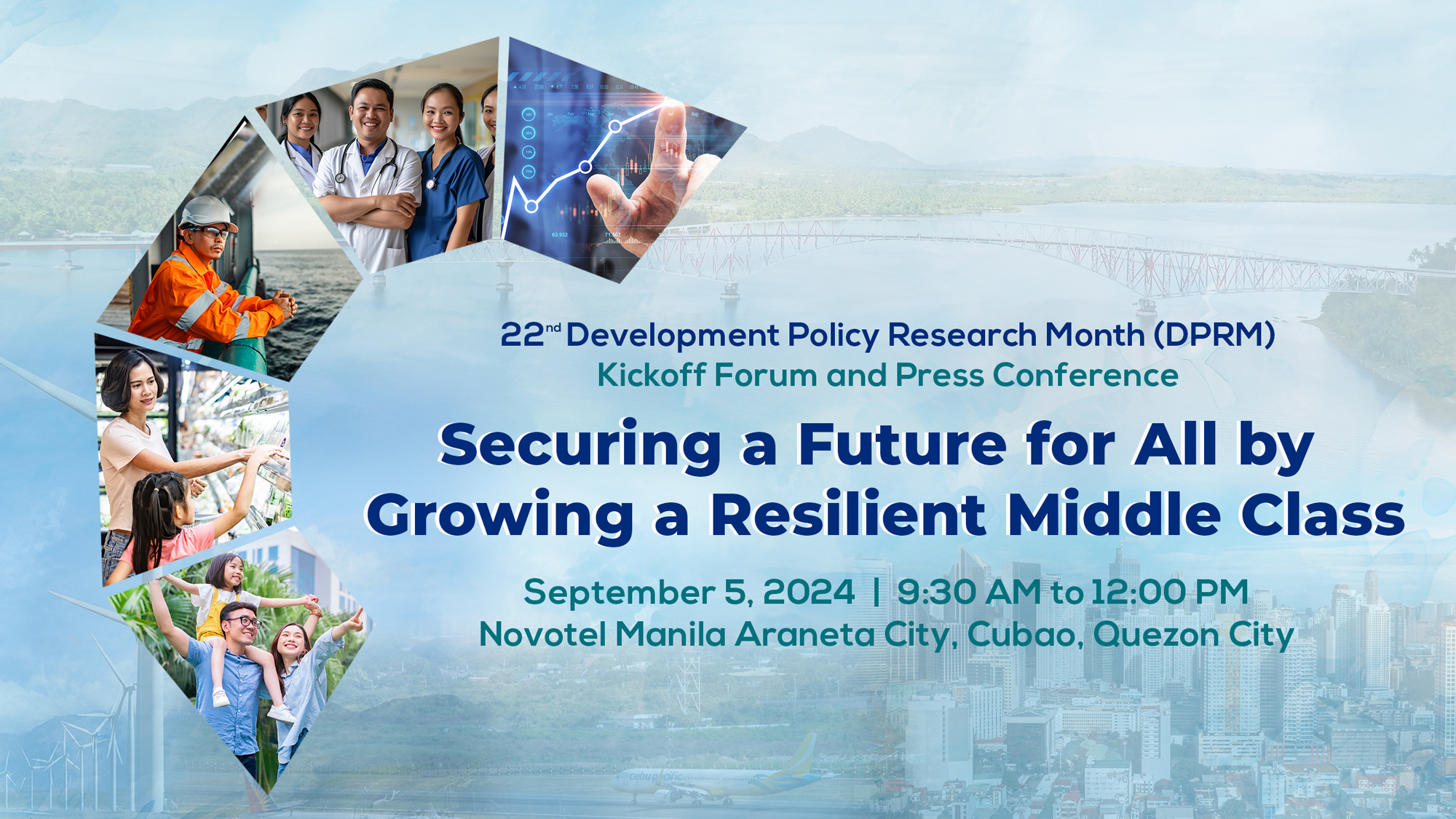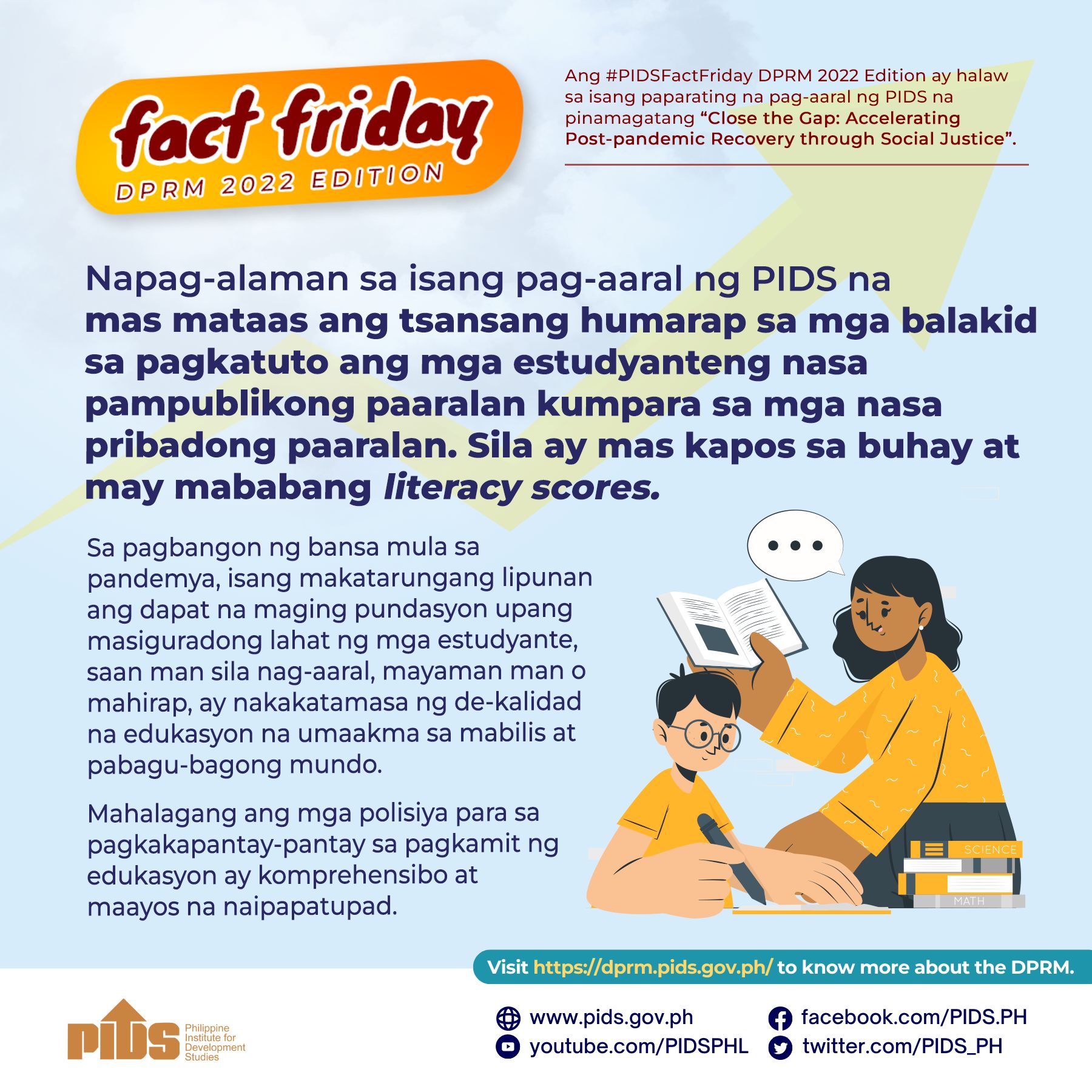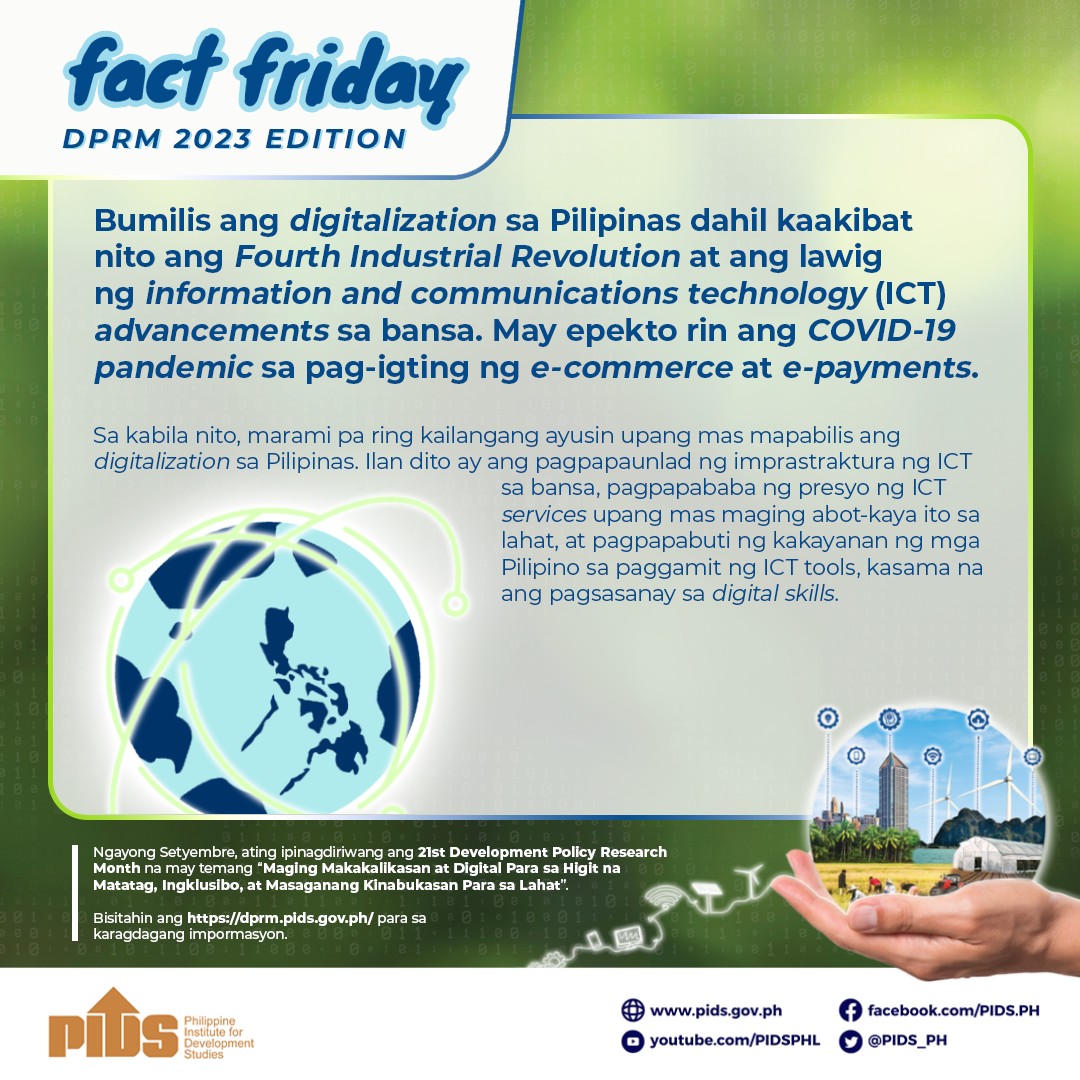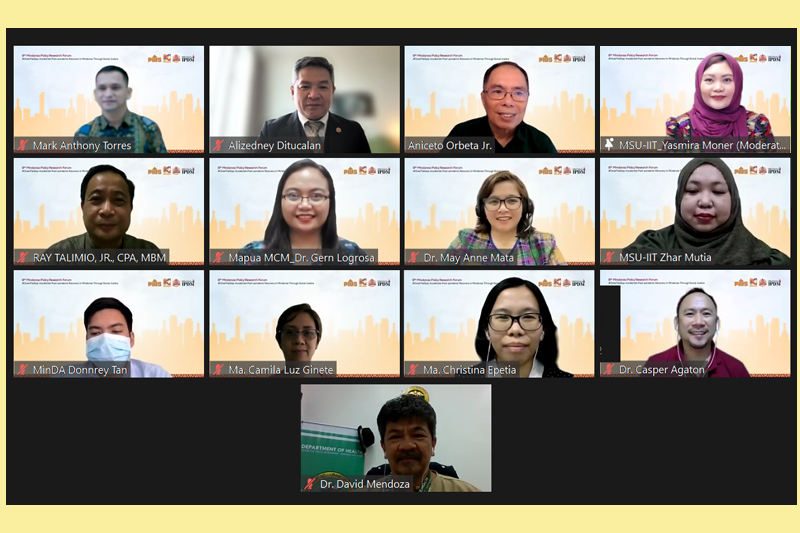
The Philippine Institute for Development Studies (PIDS) and the Mindanao Development Authority (MinDA), in partnership with the Mindanao State University–Iligan Institute of Technology (MSU-IIT), recently conducted the 8th Mindanao Policy Research Forum (MPRF) in observance of the Development Policy Research Month (DPRM).
The forum carried the theme, “#CloseTheGap: Accelerate Post-pandemic Recovery in Mindanao through Social Justice”, and discussed evidence-based research and policy solutions that can help Mindanao address inequality.
In his welcome remarks, MSU-IIT Chancellor Alizedney Ditucalan emphasized the inequality that Mindanao faces. According to him, the region supplies 40 percent of the country’s food and holds 40 percent of the country’s mineral reserves. Despite having abundant resources, he noted that Mindanao’s development remains slow.
Meanwhile, PIDS President Aniceto Orbeta Jr. emphasized that while the negative effects of the COVID-19 pandemic cut across sectors, the magnitude of the impact was not the same for all.
“We should renew our commitment to social justice and ensure that our policies and programs are evidence-based. With this framework, we can move forward from this pandemic with certainty that our marginalized and vulnerable fellow citizens will not be left behind,” he said.
The forum convened experts from the government and academe to provide insights on how Mindanao can accelerate its post-pandemic recovery.
PIDS Research Fellow Ma. Christina Epetia, one of the presenters, explained the concept of social justice and how it relates to health, education, labor, and the environment.
She highlighted the importance of equal access to services and opportunities, such as quality education. Significant disparities in education outcomes reveal the inequity in access to quality education, with the COVID-19 pandemic exacerbating these disparities.
“From a social justice perspective, quality education involves three dimensions. First is inclusion, meaning access to quality education and opportunities for realizing learning outcomes. Second is relevance, which is connected to how meaningful outcomes are. Third is democracy, which involves participation and decisions in education quality,” Epetia explained.
Gernelyn Logrosa, research head at the Mapua Malayan Colleges Mindanao, underscored the region’s capacity for innovation. It has experts, capacities, and tools but to utilize these resources, “it is important to be aware of these tools and technologies, and strengthen partnerships among the academe, government, industry, and civil society.”
For example, University of the Philippines Mindanao Professor and University Scientist May Anne Mata presented the Disease Watch (DiWa), a virtual planning tool and integrative platform to empower decisionmakers for efficient pandemic management in Mindanao.
According to Mata, the DiWa tool targets officials of local government units and health agencies. “Instead of the time-consuming manual data analysis, technical personnel and decisionmakers can focus on strategizing, thereby quickly responding to potential surges. To help fight disinformation, DiWa also provides accurate information about the transmission dynamics of the disease,” she explained.
On entrepreneurship, University of Science and Technology of Southern Philippines Center on Policy Advocacy and Human Development Program Lead Casper Agaton highlighted the need to support startup micro, small and medium enterprises (MSMEs), upskill young entrepreneurs, and improve digital and energy infrastructures to accelerate digital innovations in MSMEs.
Lastly, on security in conflict-affected areas, Institute for Peace and Development in Mindanao Director Mark Anthony Torres underscored the importance of investigating the root causes of violence and conflict, which, he explained, “are not only limited to understanding enemy images, biases, discrimination, and stereotypes among different types of people but also knowing the root causes of poverty and lack of access to basic services like potable water and food supplies”.
MinDA Chairperson Maria Belen Acosta, represented by Policy, Planning, and Project Development Office Director Joey Recimilla, closed the event with a message that “the usual mindset of a one-size-fits-all solution should not be the case in Mindanao. Context-specific approaches must be considered.” ###
You may watch the webinar at https://fb.watch/g7Hu_oBVMe/ or https://youtu.be/jD1sIEf366w.
For more videos of PIDS events, go to https://www.pids.gov.ph/videos.

